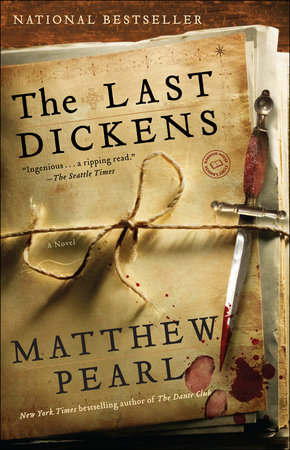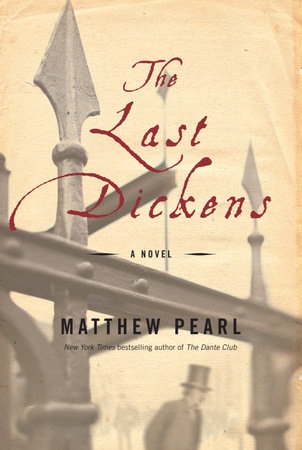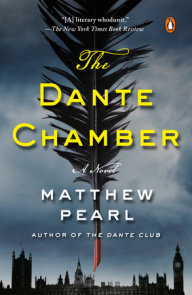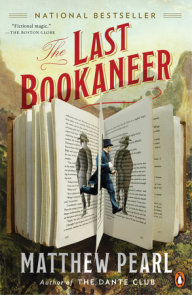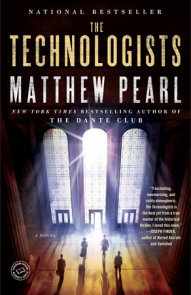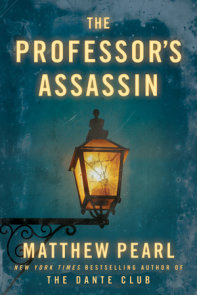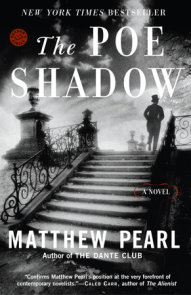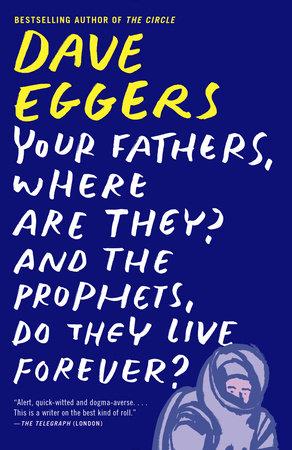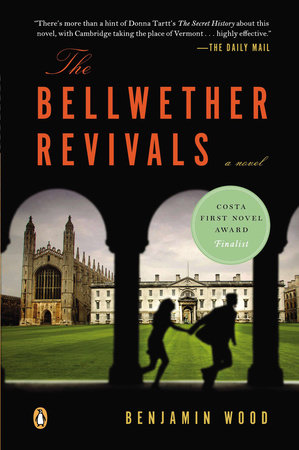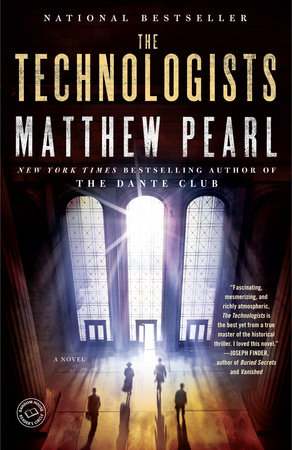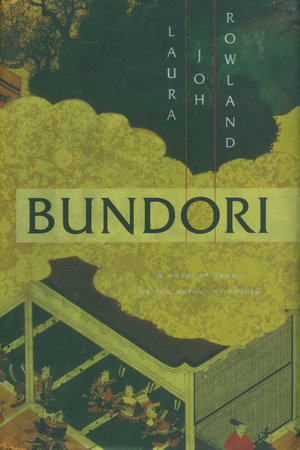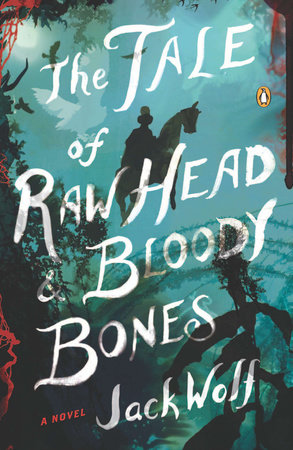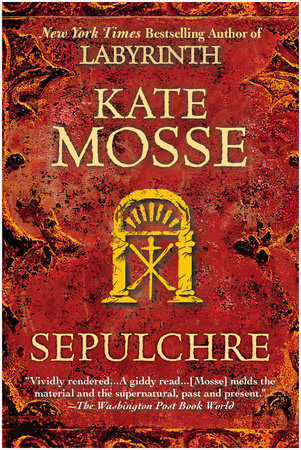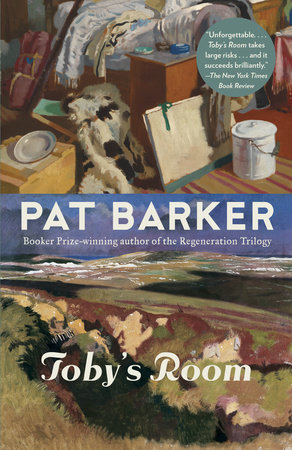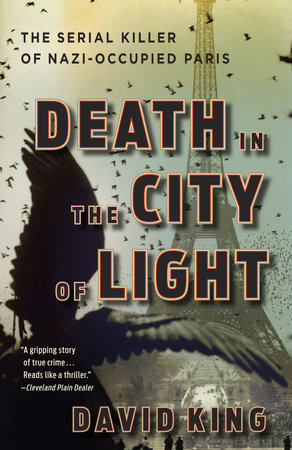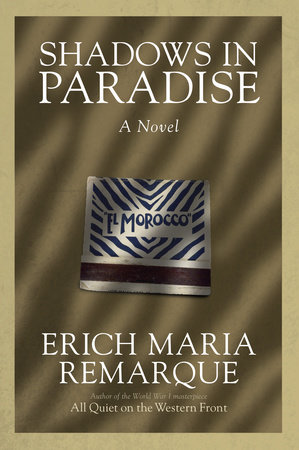Author Q&A
A Conversation Between Matthew Pearl and James Ripley Osgood
James Ripley Osgood: It’s high time someone told the story behind our publication of Mr. Dickens’s final book. Of course, for reasons of propriety I couldn’t do it myself. What gave you the idea to write this book?
Matthew Pearl: I’ve found that writing one book tends to generate another. When I was doing background research on nineteenthcentury detective fiction for my first novel, The Dante Club, my attention was directed back to one of my early interests, Edgar Allan Poe, because of his innovations in that genre. That led to the writing of my second novel, The Poe Shadow, during which I found myself examining Poe’s one meeting with Charles Dickens. They didn’t get along that well.
JRO: Oh, nobody got on well with poor Eddie!
MP: That’s how it seems. Well, reading about that meeting–and the fact that Dickens and Poe discussed mystery writing–planted the idea in my mind to think about Dickens and mystery together, which of course led me to The Mystery of Edwin Drood, Dickens’s famous last work. As I developed my ideas for a story, there seemed to be a natural continuity and evolution from my earlier books. The Dante Club approached its story from the perspective primarily of writers– the prominent poets and writers who formed the club. The Poe Shadow approached its mystery (Poe’s death) from the perspective of a reader. Now, with The Last Dickens, the story takes on another perspective–that of the publisher. Something a little different: a novel with a publisher as the hero!
JRO: An idea close to my own heart. Especially since you chose to make me that hero! Are there specific links between The Last Dickens and your other novels of literary history?
MP: They can be read in any order, but I hope that the three novels do communicate with each other for those who choose to read all of them. Many of the themes–the boundary between literature and life, for instance–are present in each of them. Poe becomes an important reference point in The Last Dickens and some characters from The Dante Club reappear in The Last Dickens, including Oliver Wendell Holmes, Henry Wadsworth Longfellow, J. T. Fields, and, well, you. Although the stories are very different, they occupy overlapping worlds of writers and publishers.
JRO: In my day, some of the important publishers were Harper, Houghton, Little Brown, Macmillans. I suppose everything is different now.
MP: We still have some of the same names, actually–but publishing is a very different world today. With so much competition and technology, it’s often thought of as “old media,” something outdated, corporate, and passive. For me, one of the exciting elements of The Last Dickens was to revisit the unique cultural battleground of the nineteenth century, when book publishing was cutting edge. The rivalries were fierce and the consequences of publishing important books could be far-reaching, even life-saving or dangerous. Because of incomplete copyright protection, there were even hired agents–sort of literary bounty hunters–seeking to intercept British manuscripts when they arrived in American ports so the pirating publishers could beat their rivals to the market. These characters show up here as the “Bookaneers,” and are favorites of many readers of The Last Dickens who have shared their thoughts with me.
JRO: I’ve had more than my share of dealings with those scoundrels, and can tell you they are not my favorite people. Your book also includes scenes of Mr. Dickens’s historic visit to the United States. How were you able to gather so much knowledge about the nineteenth century and Mr. Dickens? Even about my sense of humor!
MP: Research is very important to me in composing my historical novels. There is so much scholarship on Dickens, it can actually be overwhelming. Dickens’s visit to the United States was really remarkable, to see what a megastar, a rock star–sorry, Mr. Osgood– a very celebrated person–he was. I researched his interactions with admirers as well as the personalities of his entourage of assistants and staff. I wanted to invite my readers “behind the scenes” of Charles Dickens’s fame. Dickens’s own letters back home were invaluable for that purpose, as was the memoir of his theatrical manager, George Dolby. The Parker House, where Dickens stayed in Boston, is still in the same location and even has the mirror Dickens used to practice his performances. Delmonico’s restaurant, in lower Manhattan, is where Dickens had his farewell dinner before returning to England. They have a room dedicated to Dickens.
JRO: That was a fine dinner! Excellent speeches, and I still can taste the Timbales a la Dickens the Delmonico’s chef created for our guest. I suppose that has become a staple of your cuisine?
MP: Beets and onions fried in batter? Not quite.
JRO: Shame.
MP: Actually, we celebrated the publication of The Last Dickens in the Dickens Alcove at Delmonico’s, and they kindly re-created the timbales for us. For those of us who couldn’t be there at the time, the next best thing is to walk in the shadows of history and imagine.
JRO: You also pick up on a particularly obsessed reader we had to try to keep away from the chief in Boston and New York.
MP: That was one of those fortuitous moments that historical-fiction writers experience once in a while. I had wanted to prompt my characters and readers to reflect on the nature of celebrity, and particularly the new type of modern celebrity I feel Dickens helped usher in. I decided to create a fictional stalker character. Much to my surprise, as my research continued, I found the “real” stalker–a woman of high society! The incident had been largely lost to history, I suspect, because of her high status. I was grateful to uncover bits and pieces of her story, and it made for a fuller character.
JRO: In addition to Boston and England, your story even travels all the way to India. How did that come about?
MP: That was a serious research challenge. Parallel with the changes and expansion of the publishing industry, I also wanted to peek into the development of the opium trade as it took on a form that began to resemble the modern drug trade. Both publishers and drug dealers alike began to recognize the power of selling escapism to the increasingly overstressed populace and the wealth it could create. India was under British control around this time, and one of Charles Dickens’s sons, Francis (who went by Frank), was a supervisor in the mounted police in Bengal. Among his duties would have been to protect the movement of opium to China. Surprisingly, almost no scholarship has been done on Frank’s time in India. I managed to dig up some of the official reports from the British authority that included details of Frank’s work. In addition, I read up on the various memoirs of Dickens’s children to get a sense of what it felt like to be the son of this living legend. When Charles Dickens died, his estate was left in some disarray, which made the status of The Mystery of Edwin Drood all the more important to his immediate circle.
JRO: Perhaps it’s not remembered in your era what a commotion it caused to have an unfinished Dickens novel. It was chaos! We have to remember that Dickens’s novel was already being read around the world in serialized form. So when he died, readers were right in the middle of the story–of the mystery. People were intensely interested in trying to find an outcome to the story. There were some who tried to publish their own endings. There were also rumors that the rest of the novel was out there somewhere.
MP: That was my starting point for imagining my novel. I wasn’t very interested in cranking out another theory about how The Mystery of Edwin Drood could have ended. Instead, I wanted to dramatize and mobilize that feeling of urgency and desperation to try to find the ending, and why it is that an unfinished novel, particularly an unfinished Dickens novel, can be so disorienting to readers.
JRO: Of course, everyone must still read The Mystery of Edwin Drood! That makes all our hard work back in 1870 worth it.
MP:Well . . . to be perfectly honest, Mr. Osgood, though at one point The Mystery of Edwin Drood was the most written about book in the English language, it’s not one of the more popularly known Dickens novels today. In this age of “on demand,” when we can download a book with a press of a button, maybe we’re too impatient to tackle an unfinished book. But I hope some readers of The Last Dickens who haven’t picked up The Mystery of Edwin Drood before will consider doing so. It’s such a fun read because it forces us–the readers–to take on a participatory role in ending the book. In fact, I’ve edited and written an introduction for a new edition of The Mystery of Edwin Drood published by the Modern Library alongside The Last Dickens. We’ve done similar companion editions for The Dante Club (Longfellow’s translation of Dante’s Inferno) and The Poe Shadow (The Murders in the Rue Morgue: The Dupin Tales). I find that this is a great way for readers, classes, and book clubs who want to keep building on their reading.
JRO: Thank you for your time. You know, years after working with Mr. Dickens, I came to publish one Mark Twain. We traveled together down the Mississippi. Now, there was an adventure!
MP:Wait a second. Let me get a notepad.
